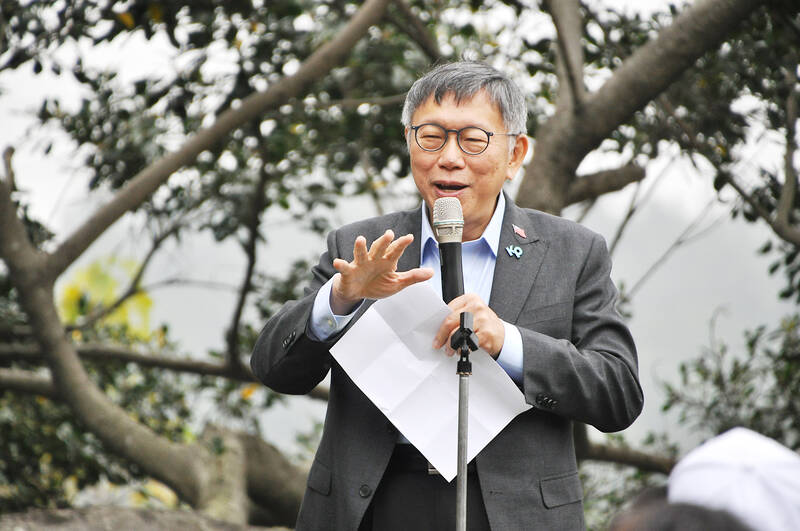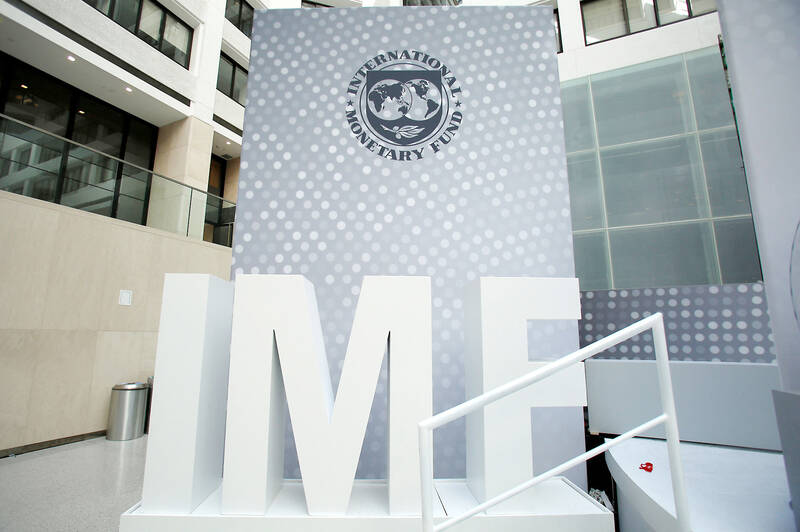Last week the Directorate-General of Budget, Accounting and Statistics (DGBAS) released a set of very strange numbers on Taiwan’s wealth distribution. Duly quoted in the Taipei Times, the report said that “The Gini coefficient for Taiwanese households… was 0.606 at the end of 2021, lower than Australia’s 0.611, the UK’s 0.620, Japan’s 0.678, France’s 0.676 and Germany’s 0.727, the agency said in a report.”
The Gini coefficient is a measure of relative inequality, usually of wealth or income, though it can be used to evaluate other forms of inequality. However, for most nations it is a number from .25 to .50 (or 20-50 depending how it is presented), not a number over .60, and certainly not for European nations with histories of social democracy. As a longtime observer of Taiwan noted in a private email to me, it appears that the DGBAS actually inverted the numbers.
ABNORMAL NUMBERS

Photo: Chou Min-hung, Taipei Times.
The Gini coefficient for Taiwan and most other advanced economies is usually a number in the low to mid-30s. For example, a paper from a group of scholars at National Taiwan University (NTU) and other top research institutions on trends in Taiwan’s income inequality published last year states: “Today, the official Gini coefficient is around 0.33.” A glance at the World Bank website shows this is broadly true for the whole world. For Germany, it is not .727 as the DGBAS states, but around .32 according to the World Bank, .31 for France (2021), .32 for Japan (2013), .32 for the United Kingdom (2021) and .38 for the US (2021).
Whatever its problems, the DGBAS report glosses over the extent of wealth disparities in Taiwan in other ways. It uses the Gini coefficient for household wealth. As the paper quoted above observed, the household tax data represents only about half the income in Taiwan. The other half consists of government income, untaxed income, and corporate income. There is also a significant income component, capital gains, that is not counted in the Gini. Further, as the paper notes, top incomes are under-reported, while the Gini itself is a only a broad measure that is less sensitive to changes in higher income groups — precisely the groups making the greatest gains since 2000.
That paper goes on to develop another measure of income inequality, and not surprisingly, it finds that income inequality is much higher. The Gini measures households, but their measure assigns the distribution of income to each individual in the nation. Readers will probably not be very shocked to find the DGBAS presentation deprecates Taiwan’s actual wealth and income inequality, which has been a key bragging point for decades by successive governments.

Photo: REUTERS
When capital income is taken into account, inequality in Taiwan began worsening visibly nearly three decades ago, because of the distribution of capital income. “Overall, we find that the rising income inequality after the middle 1990s in Taiwan is a capital income phenomenon.” By their methodology, inequality in Taiwan reached US levels in the 2010s and Taiwan now belongs in the tier of inequality with the US, just below the highest level, which includes nations such as India and Brazil.
The high income inequality is evidenced by other numbers. Statistics show that labor’s share of the take of Taiwan’s GDP has been in decline for many years, and is now less than half. Corporations receive a disproportionate return thanks to the low salaries here relative to labor productivity. “Overall, the net primary income of corporations to national income share increases two-fold from the 1990s to the 2010s,” observes the 2023 paper above. A ThinkChina piece last year said that “over 68 percent of wage earners have a salary lower than the average,” partly because a few high wage earners skew the average.
Another signifier of high income inequality is the increase in tall buildings in Taiwan. Several thinkers, Alex Marshall and Jason Barr among them, have argued that building height and income inequality are correlated. That does not hold true for every nation (Brazil, for example), but for more advanced economies, it seems to be broadly true. Two nations with high levels of income inequality and great wealth, the US and the People’s Republic of China (PRC), lead the world in skyscrapers.
The rise in income inequality is paradoxical: globally, income inequality is declining across countries, but within countries, it is rising, according to the International Money Fund (IMF). “Excessive” inequality reduces social cohesion and increases political polarization, the IMF says. As any economist knows, it reduces overall consumption and slows economic growth. Jonathon Ostrey, an IMF official, warned in an interview that “Too much inequality can undercut the ability to sustain growth.”
The IMF asks the key question: when is inequality excessive? The IMF says that is a question for each country to answer, based on its unique social and economic context. There are actually studies that attempt to address that question. In a 2005 study Robert Macculloch found that a 1 standard deviation increase in the Gini coefficient of income explains 38 percent of the standard deviation in revolutionary support. MacCulloch argued that since high income people rarely revolt, increasing incomes should reduce support for revolution.
CROSS-PARTY FAILURE
In Taiwan, the failure of either of the major national parties, the Chinese Nationalist Party (KMT) and the Democratic Progressive Party (DPP) to address the inequality (and numerous other social welfare issues) has led the public to search for alternatives. The major winner of this has been Ko Wen-je (柯文哲) and his Taiwan People’s Party (TPP). The TPP is not a left-wing alternative party, but has taken the position of another right-wing, pro-China party, which a large number of disaffected DPP supporters voted for, especially males.
This suggests, as some of us have been noting, that the DPP failure to make meaningful change, has left the door open for right-wing candidates who can position themselves as outsiders. Indeed, a prominent academic suggested on Twitter/X that another split presidential election vote and further failures on the economic welfare front could well let Fu Kun-chi (傅崐萁) squeak by into the presidency.
I do not think Fu will be acceptable to the public at large, but there are several slick opportunists with local fan bases who could slip into that role. But the larger problem with the eight-year DPP failure, as the KMT knows, is that when the public gives up toying with alternative candidates over the next couple of election cycles — it may well conclude that annexation to the PRC is a potential cure for what ails their economic welfare.
Last week KMT lawmakers, led by Legislator Niu Hsu-ting (牛煦庭), sought to amend the Labor Standards Act (勞動基準法) to allow employers to pay new workers 80 percent the standard wage during their probationary period. The law was a direct copy of a PRC law, the DPP’s Wang Ting-yu (王定宇) pointed out.
Is it only to help their big business supporters that the KMT pushes bills like this?
Notes from Central Taiwan is a column written by long-term resident Michael Turton, who provides incisive commentary informed by three decades of living in and writing about his adoptive country. The views expressed here are his own.

Jacques Poissant’s suffering stopped the day he asked his daughter if it would be “cowardly to ask to be helped to die.” The retired Canadian insurance adviser was 93, and “was wasting away” after a long battle with prostate cancer. “He no longer had any zest for life,” Josee Poissant said. Last year her mother made the same choice at 96 when she realized she would not be getting out of hospital. She died surrounded by her children and their partners listening to the music she loved. “She was at peace. She sang until she went to sleep.” Josee Poissant remembers it as a beautiful

For many centuries from the medieval to the early modern era, the island port of Hirado on the northwestern tip of Kyushu in Japan was the epicenter of piracy in East Asia. From bases in Hirado the notorious wokou (倭寇) terrorized Korea and China. They raided coastal towns, carrying off people into slavery and looting everything from grain to porcelain to bells in Buddhist temples. Kyushu itself operated a thriving trade with China in sulfur, a necessary ingredient of the gunpowder that powered militaries from Europe to Japan. Over time Hirado developed into a full service stop for pirates. Booty could

Before the last section of the round-the-island railway was electrified, one old blue train still chugged back and forth between Pingtung County’s Fangliao (枋寮) and Taitung (台東) stations once a day. It was so slow, was so hot (it had no air conditioning) and covered such a short distance, that the low fare still failed to attract many riders. This relic of the past was finally retired when the South Link Line was fully electrified on Dec. 23, 2020. A wave of nostalgia surrounded the termination of the Ordinary Train service, as these train carriages had been in use for decades

Lori Sepich smoked for years and sometimes skipped taking her blood pressure medicine. But she never thought she’d have a heart attack. The possibility “just wasn’t registering with me,” said the 64-year-old from Memphis, Tennessee, who suffered two of them 13 years apart. She’s far from alone. More than 60 million women in the US live with cardiovascular disease, which includes heart disease as well as stroke, heart failure and atrial fibrillation. And despite the myth that heart attacks mostly strike men, women are vulnerable too. Overall in the US, 1 in 5 women dies of cardiovascular disease each year, 37,000 of them